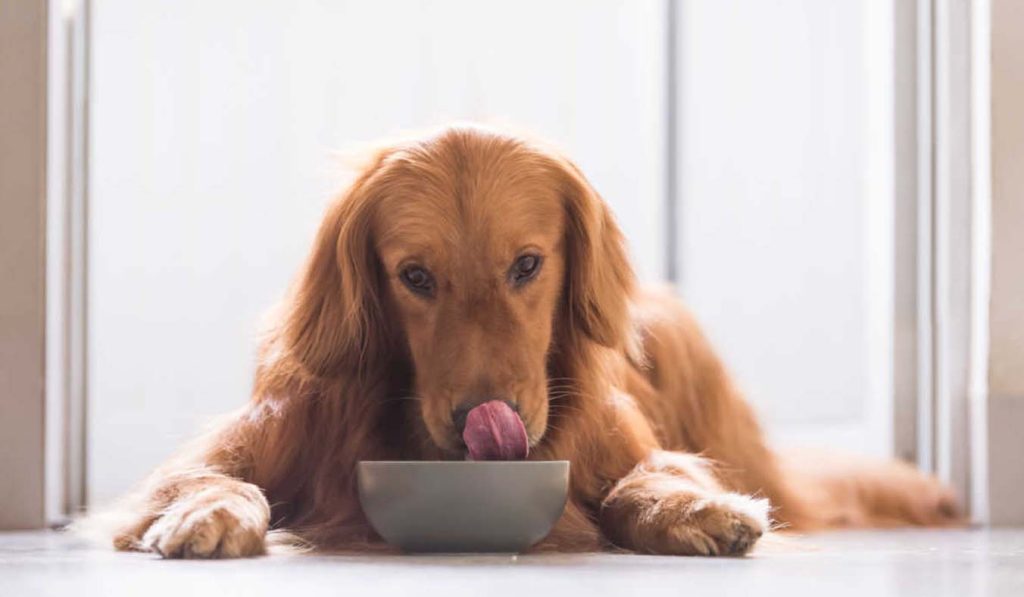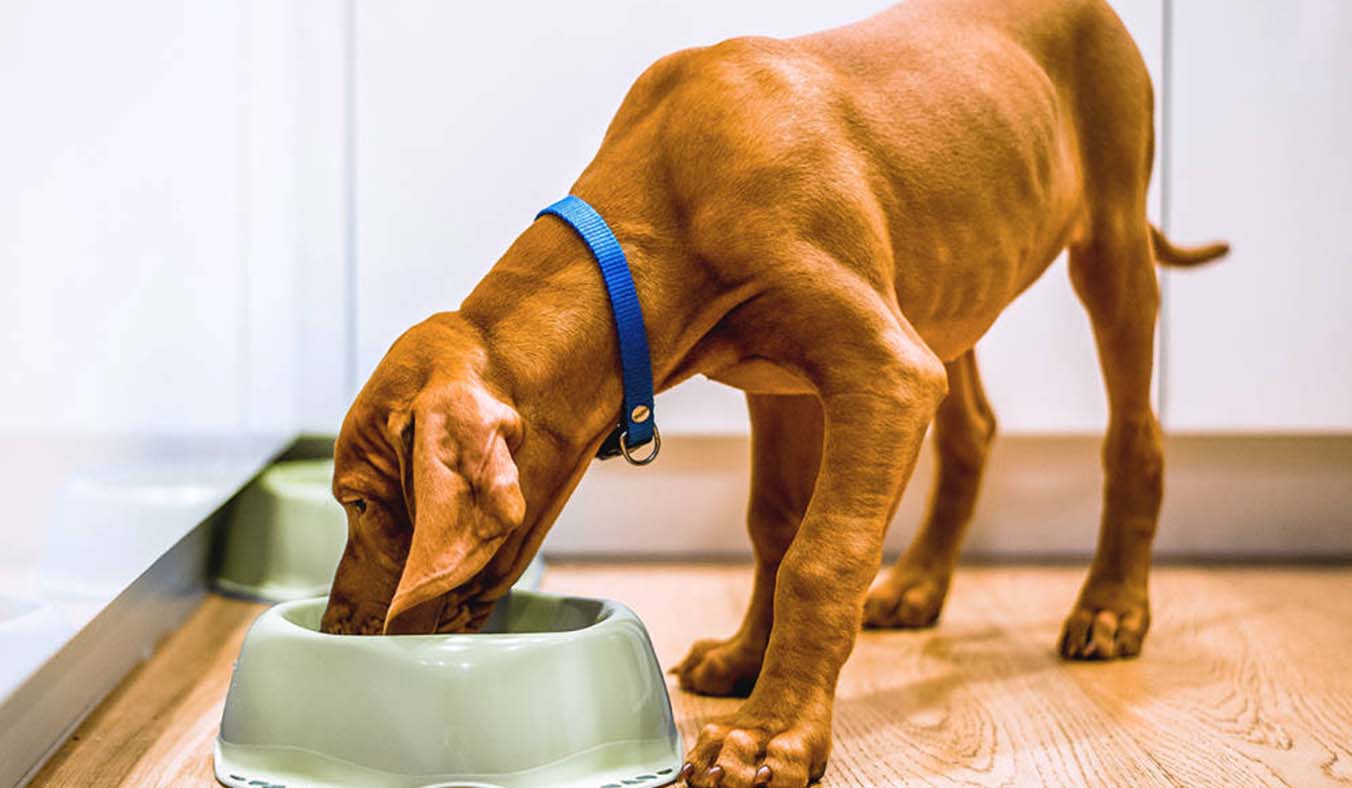In the realm of canine health, colitis emerges as a formidable adversary, casting a shadow of discomfort and uncertainty over the lives of our beloved canine companions. With a compassionate gaze into the world of canine colitis, let us embark on a journey to unravel the intricacies surrounding this gastrointestinal condition, exploring its symptoms, causes, and treatment modalities with clarity and empathy.
Exploring Canine Colitis:
Canine colitis, an ailment marked by inflammation within the colon or large intestine, plagues dogs across breeds and ages with alarming frequency. This gastrointestinal malady throws the intricate ecosystem of the intestines into disarray, heralding a range of clinical manifestations that wield considerable influence over a dog’s vitality.
In essence, colitis in dogs embodies a complex interplay of factors, including dietary indiscretions, microbial imbalances, and immune system dysregulation. These elements converge to sow chaos within the gut, triggering a cascade of inflammatory responses that wreak havoc on the delicate intestinal lining.
The symptoms of canine colitis run the gamut from mild to severe, with affected dogs exhibiting signs such as persistent diarrhea, often containing blood or mucus, accompanied by frequent urgency to defecate. Additionally, dogs may experience abdominal discomfort, manifested through behaviors like straining during bowel movements or exhibiting signs of pain.
Diagnosing canine colitis necessitates a comprehensive approach, involving a thorough physical examination, fecal analysis to rule out parasitic or bacterial causes, and potentially advanced diagnostic imaging modalities like abdominal ultrasound or endoscopy.
Treatment strategies for canine colitis are multifaceted, aiming to quell inflammation, restore intestinal health, and manage symptoms effectively. Veterinarians often prescribe a combination of dietary modifications, such as hypoallergenic or easily digestible formulations, alongside medications like anti-inflammatory drugs or antibiotics to target underlying causes.
Furthermore, probiotics and prebiotics may be incorporated into the therapeutic regimen to rebalance the gut microbiota, fostering a more favorable environment for intestinal healing and recovery.
In severe cases resistant to conventional therapies, more aggressive interventions like immunosuppressive medications or specialized diets may be warranted to alleviate symptoms and improve quality of life.
Canine colitis poses a formidable challenge to both dogs and their caretakers, demanding a nuanced understanding and a tailored therapeutic approach to mitigate its disruptive effects on gastrointestinal health. Through diligent management and veterinary intervention, afflicted dogs can embark on a path toward restoration and well-being, reclaiming their vitality and zest for life.
Identifying Symptoms of Canine Colitis:

The spectrum of symptoms accompanying canine colitis paints a vivid portrait of the gastrointestinal upheaval lurking within our canine companions. Here’s a closer look at the telltale signs indicative of this inflammatory disorder:
- Persistent or Intermittent Diarrhea: A hallmark feature of colitis, diarrhea in affected dogs often takes on a stubborn persistence, tinged with the presence of mucus or blood. This relentless discharge underscores the tumultuous state of the intestinal milieu.
- Increased Frequency of Defecation: Dogs grappling with colitis may find themselves besieged by an urgent call to relieve themselves more frequently than usual. The act of defecation becomes fraught with urgency, sometimes accompanied by visible signs of straining as the colon grapples with inflammation-induced dysmotility.
- Abdominal Discomfort or Bloating: The abdomen, once a bastion of tranquility, becomes a battleground of discomfort in dogs afflicted with colitis. Restlessness, pacing, or even a guarded stance may betray the visceral unease simmering within. Bloating, a tangible consequence of intestinal gas accumulation, adds a palpable dimension to their distress.
- Loss of Appetite or Reluctance to Eat: The gastronomic pleasures that once enthralled our canine companions may lose their allure in the throes of colitis. Gastrointestinal distress casts a shadow over their appetite, leading to a discernible reluctance to partake in meals. The very act of eating, once a source of joy, now becomes tinged with apprehension.
- Weight Loss or Changes in Body Condition: As the metabolic demands of colitis exact their toll, dogs may find themselves gradually wasting away, their once-sturdy frames dwindling in size. Weight loss becomes a silent sentinel of the underlying turmoil within, a poignant reminder of the metabolic strife wrought by this inflammatory malady.
In essence, recognizing the nuanced interplay of these symptoms is paramount in unraveling the enigma of canine colitis. By heeding these subtle cues, pet owners and veterinarians alike can embark on a collaborative journey toward diagnosing and managing this gastrointestinal conundrum, restoring vitality and well-being to our cherished canine companions.
Unraveling the Causes of Canine Colitis:
Delving into the intricate web of factors underpinning canine colitis unveils a tapestry of influences, each contributing its own unique hue to the canvas of gastrointestinal inflammation. Let’s embark on a journey through the labyrinthine landscape of colitis causes in dogs:
- Dietary Indiscretion or Intolerance: The canine palate, while adventurous, may sometimes veer into treacherous terrain marked by dietary indiscretions. Consuming forbidden morsels or grappling with dietary ingredients that trigger intolerance can set the stage for a cascade of gastrointestinal distress. The delicate lining of the intestine, ill-equipped to cope with such dietary onslaughts, becomes inflamed and perturbed, heralding the onset of colitis.
- Infectious Agents: Nature’s microscopic marauders, in the form of bacteria, viruses, or parasites, lurk in the shadows, poised to launch their assault on the canine gastrointestinal fortress. When these insidious invaders breach the body’s defenses, they sow seeds of chaos within the intestinal domain, igniting a fiery conflagration of inflammation. The resulting skirmish between host and pathogen leaves the colon ravaged and inflamed, a battleground of microbial machinations.
- Inflammatory Conditions: Within the intricate tapestry of canine health, the specter of inflammatory bowel disease (IBD) looms large, casting its shadow over the gastrointestinal landscape. This enigmatic malady, characterized by aberrant immune responses targeting the intestinal milieu, plunges the delicate balance of gut immunity into disarray. Immune cells, once guardians of homeostasis, turn rogue, unleashing a torrent of inflammation that wreaks havoc on the intestinal architecture, paving the way for colitis to take root.
- Stress or Anxiety: The mind-body connection, writ large in the annals of veterinary medicine, unveils its profound influence on gastrointestinal health. Stress and anxiety, those intangible specters haunting the canine psyche, wield their influence through the intricate dance of the gut-brain axis. Neurotransmitters and hormones, the messengers of emotion, choreograph a symphony of gut motility and immune modulation, often to the detriment of intestinal harmony. In the crucible of stress, colitis finds fertile ground to flourish, as the delicate balance of the gut ecosystem teeters on the brink of imbalance.
In essence, the causes of canine colitis weave a complex tapestry of interwoven threads, each contributing its own narrative to the saga of gastrointestinal inflammation. By unraveling these intricate strands, veterinarians and pet owners alike can glean insights into the underlying mechanisms driving colitis in dogs, paving the way for targeted interventions aimed at restoring intestinal equilibrium and fostering canine well-being.
Charting a Course for Treating Canine Colitis:

Embarking on the voyage of treatment for canine colitis demands a strategic approach, navigating the turbulent waters of gastrointestinal inflammation with precision and care. Here’s a compass to guide our journey:
- Dietary Modification: As we set sail, the first port of call beckons with the promise of dietary intervention. Transitioning our canine companions to the shores of a highly digestible, low-residue diet or venturing into the realm of hypoallergenic formulations holds the key to assuaging gastrointestinal unrest. By providing sustenance that soothes rather than exacerbates inflammation, we lay the foundation for intestinal healing and restoration.
- Medications: Armed with the arsenal of pharmacotherapy, we embark on a quest to vanquish the foes lurking within the canine colon. Anti-inflammatory agents, stalwart defenders against the onslaught of gut inflammation, stand ready to quell the fires of colitis and restore tranquility to the intestinal realm. Antibiotics, vigilant sentinels in the battle against microbial miscreants, wage war against invasive pathogens, forging a path towards microbial harmony. Probiotics, the emissaries of microbial diplomacy, seek to replenish the ranks of beneficial bacteria, fostering a terrain inhospitable to inflammatory incursions.
- Symptomatic Management: Amidst the tempest of gastrointestinal upheaval, we extend a lifeline of symptomatic relief to our canine companions, offering solace in the face of discomfort and distress. Medications to tame the torrent of diarrhea, assuage the ache of abdominal discomfort, and promote the rhythmic cadence of gastrointestinal motility serve as beacons of hope, illuminating the path towards improved quality of life.
- Environmental Management: Casting our gaze beyond the confines of the gastrointestinal tract, we recognize the profound influence of environmental factors in shaping the course of colitis. Minimizing stressors that lurk on the horizon and cultivating a nurturing habitat conducive to healing emerge as cornerstones of our treatment strategy. Through the gentle touch of environmental stewardship, we pave the way for sustained remission and guard against the specter of disease recurrence.
In essence, navigating the labyrinth of treatment for canine colitis demands a steadfast commitment to understanding the intricate interplay of factors shaping gastrointestinal health. By charting a course guided by dietary wisdom, pharmacological prowess, symptomatic relief, and environmental harmony, we embark on a voyage towards restoring vitality and well-being to our cherished canine companions.
Canine colitis represents a complex and multifaceted gastrointestinal disorder that demands a comprehensive approach to diagnosis and treatment. Through a combination of clinical assessment, diagnostic evaluation, and targeted therapeutic interventions, veterinarians and pet caregivers alike can work together to alleviate symptoms, address underlying causes, and restore gastrointestinal health in dogs affected by colitis. With compassion, dedication, and a commitment to optimal patient care, we can navigate the challenges of canine colitis and foster a future where our beloved canine companions thrive in health and vitality.



